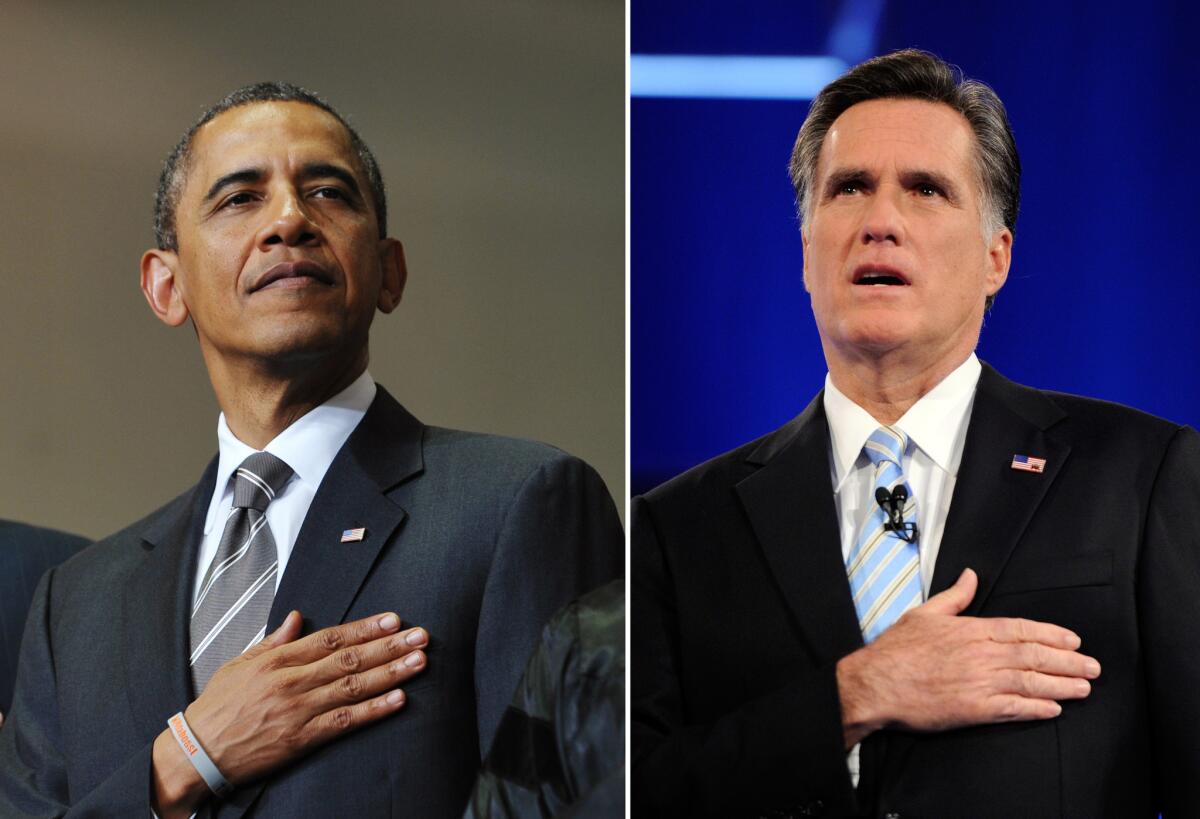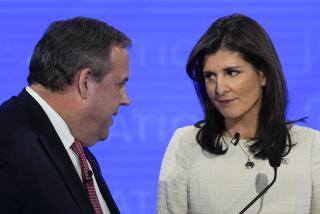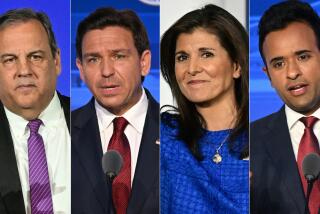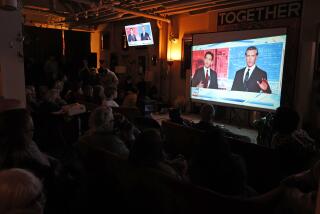McManus: Real presidential debate is possible

There are two ways that Wednesday’s debate between President Obama and his Republican challenger, Mitt Romney, could change the course of the presidential campaign.
One would be for Romney to find an effective way to frame his pitch to voters, one that erases the impression that he’s out of touch with anyone who doesn’t own a Rolex.
The other is for Obama to stumble into a mistake: a bout of prickly defensiveness about his disappointing economic record, or even an ill-timed sigh.
GOOGLE+ HANGOUT: Will the presidential debates be a turning point?
The bad news for Romney, who’s trailing at least slightly in every major poll, is that he probably needs both — a brilliant performance on his part and a stumble on Obama’s.
The good news for the Republican candidate is that both are possible. The history of recent debates that pit an incumbent president against an opposition challenger yields a striking pattern: The challenger often wins, at least on the stage.
In 1976, Gerald Ford lost in his debates to challenger Jimmy Carter; four years later, Carter lost in his to Ronald Reagan. In 1984, Reagan stumbled in his first debate against challenger Walter F. Mondale. In 1992, George H.W. Bush was badly wounded in debates by the upstart Bill Clinton. And in 2004, George W. Bush turned in an uneven performance against challenger John F. Kerry.
The debates alone didn’t determine the outcome of those elections; Reagan and the younger Bush won second terms despite their lackluster performances. But they illustrate a basic fact about presidential debates: They give the challenger a chance to erase any stature gap between the leader of the free world and the mere politician who wants his job.
Both candidates are on an equal footing; there’s no presidential seal, no “Hail to the Chief.” And the challenger has usually had more recent debate experience in his party’s primaries, as Romney did this year.
History also reveals another strange thing about debates: We remember them mostly for the errors candidates make, not for any eloquence they achieve.
The most memorable moments — Richard Nixon’s sweaty face (1960), Ford’s gaffe on Eastern Europe (1976), Michael Dukakis’ reaction to the hypothetical rape and murder of his wife (1988), George H.W. Bush’s ill-timed glance at his wristwatch (1992) — were all mistakes.
Just four years ago, Obama debated John McCain three times, but hardly anyone remembers a word. The reason? Neither candidate made a serious mistake.
Obama’s principal mission Wednesday night is to repeat that kind of error-free performance and protect his lead in the polls. A workmanlike run-through of his positions will suit the Obama campaign fine; no fireworks necessary. Obama’s not immune from gaffes; in New Hampshire in 2008, he did himself damage by coldly assuring Hillary Rodham Clinton that she was “likable enough.”
Romney, on the other hand, needs to throw the president off his stride. That means an aggressive attack on Obama’s shortfalls: the economy’s anemic growth, the persistence of 8% unemployment, the repeated failure to achieve a bipartisan budget deal with Congress.
Romney isn’t shy about attacking opponents. He was efficient and brutal in primary debates against former House Speaker Newt Gingrich and Texas Gov. Rick Perry (although Perry helped mightily by forgetting his own positions). That will be the easy part.
The more difficult job, for Romney, is finding a way to alter voters’ impression that he’s uninterested in the travails of common folk — “a plutocrat married to a known equestrian,” in the quip of former Mississippi Gov. Haley Barbour, a fellow Republican.
So expect to hear plenty of compassion from a newly moderated Mitt, the New-and-Improved Romney who has been trying to make himself heard over the past month — ever since the appearance of that disastrous videotape expressing his disdain for the 47%.
The New Romney hasn’t actually changed any of his positions; that would brand him as a flip-flopper, a mortal sin this late in a campaign. But he has begun describing his positions in ways that might appeal to swing voters, instead of only the confirmed conservatives he focused on before. On taxes, for example, he now emphasizes that he doesn’t want new tax breaks for high-income earners, only a tax cut for middle-income families. On healthcare, after demanding the repeal of “Obamacare,” Romney now says he’d keep the most popular parts of the law, although only for people who already have insurance.
It would be nice to think Wednesday’s debate will deliver a candid, detailed discussion of big issues. I’d love to hear some specifics about how Romney and Obama think they can make the next four years in Washington more productive than the last four, how they would try to forge bipartisan agreements in a Congress that will likely to be just as divided as before.
That would require each candidate to take a risk or two, and so far, they’ve both been cautious; neither has said anything that would offend his own party’s base. But this may be one of Romney’s last chances to change the direction of the race. If he wants to do that, he’ll need to make this debate interesting.
Follow Doyle McManus on Twitter @DoyleMcManus
More to Read
Get the L.A. Times Politics newsletter
Deeply reported insights into legislation, politics and policy from Sacramento, Washington and beyond. In your inbox three times per week.
You may occasionally receive promotional content from the Los Angeles Times.







